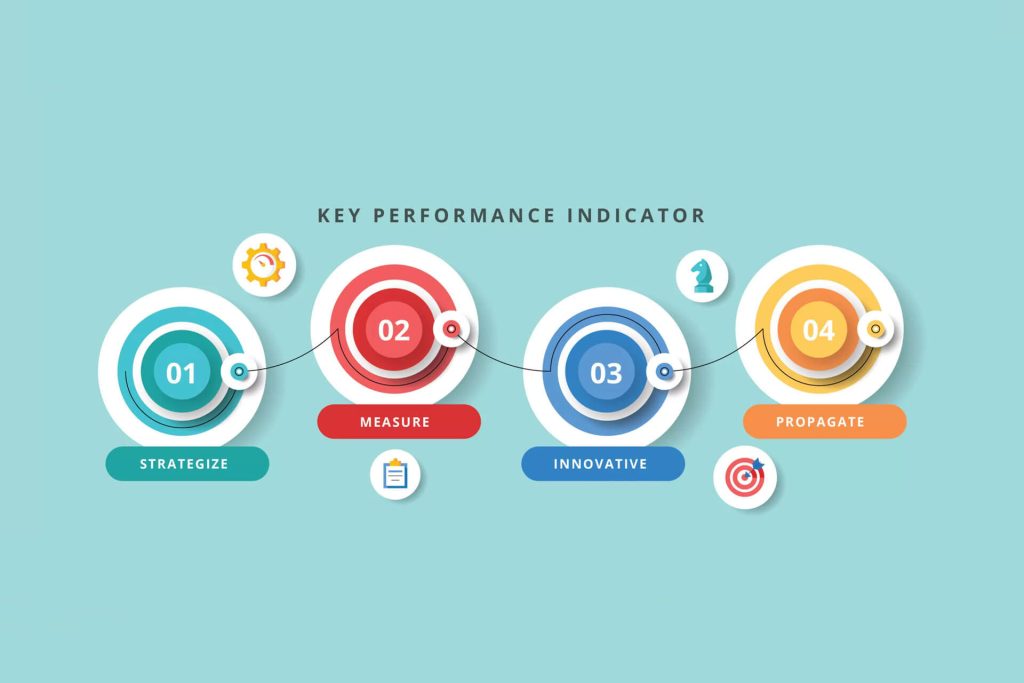Digital marketing has become a significant part of modern business. Whether running a small startup or a large enterprise, digital marketing can help you reach and engage with your target audience. However, it can be overwhelming to determine what metrics to track and measure to ensure your campaigns are effective. This is where (KPIs) Key Performance Indicators come in.
KPIs are quantifiable measures that can help you determine whether your campaigns achieve their objectives. They allow you to track your progress and make data-driven decisions. In this blog post, we’ll discuss four essential digital marketing KPIs you should track for your next campaign.
Importance of KPIs in Digital Marketing
Before moving forward, let’s try to understand what a KPI is. KPIs (Key Performance Indicators) are an essential part of successfully managing the performance of a campaign. They tell much about where you stand and can help you make educated decisions.
Businesses often set objectives for specific KPIs, which further become the foundation of their digital strategies. Although there are various KPIs in digital marketing, here we will discuss the 4 most essential types of KPI in digital marketing.
4 Best KPIs for Digital Marketing
Website Traffic
The first KPI you should be tracking is website traffic. This KPI measures the total number of visitors coming to your website. You can also use tools like GA to track your website traffic.
It is essential to understand your website traffic as it helps you understand the success of your campaigns in driving traffic. This KPI is significant for businesses that rely on their website for lead generation or e-commerce sales.
Website traffic can also help you identify potential issues with your website. For example, if you notice a sudden drop in website traffic may indicate a technical issue, such as a broken link or slow loading speed. Tracking website traffic regularly can help you identify these issues and take proper actions to improve your website’s performance.
Conversion Rate
The conversion rate is one of the important online marketing KPIs to track. This metric measures the total percentage of visitors to your web page who take a desired action, such as filling out a contact form, purchasing, or subscribing to a newsletter.
Conversion rates vary widely depending on your industry, target audience, and marketing campaign. However, it is vital to track your conversion rate to understand how effective your campaigns are in generating leads and sales.
You can change your website or marketing campaigns to improve your conversion rate. For example, you can optimize your website for mobile devices or simplify your checkout process. Regularly monitoring your conversion rate can help you identify improvement areas and make data-driven decisions to optimize your marketing campaigns.
Customer Acquisition Cost (CAC)
Customer acquisition cost (CAC) is the third KPI to track. It measures how much your business will cost to acquire a new customer. To calculate your CAC, divide your total marketing and sales expenses by the number of new customers acquired in a given period. By tracking your CAC, you can identify areas where you can reduce costs and optimize your marketing campaigns.
For example, if you notice that your CAC is higher than your average customer lifetime value (CLV), it may indicate that you need to improve your targeting or messaging. Alternatively, you may need to explore new marketing channels or adjust your pricing strategy to improve customer acquisition costs.
Return on Investment (ROI)
The fourth and final KPI to track is the return on investment (ROI). This metric tells the amount of revenue generated by your marketing campaigns relative to the cost of those campaigns. To calculate ROI, minus the total cost of your marketing campaigns from the revenue generated by those campaigns and divide the result by the cost of the campaigns.
ROI is substantial because it helps you understand the overall effectiveness of your marketing campaigns. By tracking ROI, you can identify which marketing channels and campaigns are most effective at generating revenue for your business. You can allocate your marketing budget to the most effective channels and campaigns to maximize ROI.
Conclusion
In conclusion, tracking key performance indicators online marketing is essential for any digital marketing campaign. By monitoring these metrics, you can gain insights into the effectiveness of your marketing campaigns and make data.







